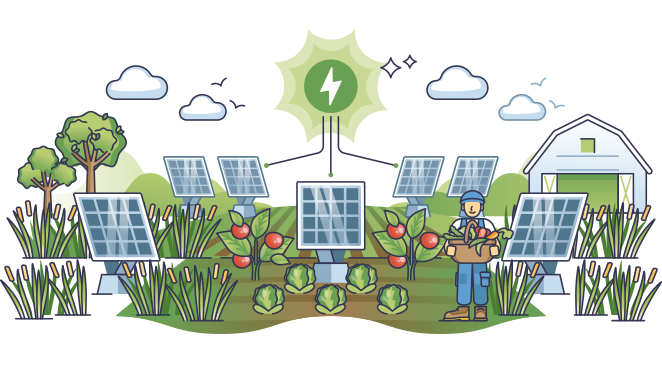
Climate change is a pressing issue that affects every corner of the globe, with significant impacts on agriculture, particularly on smallholder farms. As extreme weather becomes more common, transforming pastures and cropland across the world, farmers are facing unprecedented challenges. These environmental changes threaten crop production and kill off livestock, making it difficult for farmers to earn a living and produce enough food to survive.
In this article, we examine the link between climate change and farming and explore solutions to combating our warming world. By understanding and addressing how climate change reshapes agriculture, we can pave the way for a sustainable future for all.
Looking beyond temperatures
The last two decades have witnessed the hottest temperatures since the 1800s, with the 10 warmest years in recorded history. Global emissions, primarily from burning fossil fuels, have increased temperatures by 1.1 degrees Celsius above pre-industrial levels. This rise in greenhouse gasses has led to global warming and dramatic changes in weather patterns.
Climate change is leading to significant land degradation and water scarcity, creating substantial challenges for farmers worldwide. Changes in rainfall patterns, deforestation, and overgrazing have detrimental effects on the land. Soil is drying to dust, and arable land is becoming less productive. As water sources dwindle, it becomes increasingly difficult to maintain crop health and livestock, further exacerbating the struggle for farmers.
One of the most immediate impacts of climate change on agriculture is the reduction in crop yield. Extreme weather conditions, such as prolonged droughts and unexpected flooding, can devastate crops. Farmers are reporting record-breaking losses, and it is predicted that global food yields could decline by as much as 30% by 2050 if adaptation measures are not implemented. Crop failures not only threaten the food supply but also the economic stability of farming communities.
Drought and flooding are becoming more frequent and severe due to climate change, posing a dual threat to agriculture. Droughts lead to prolonged dry spells, making it challenging to grow crops and sustain livestock. On the other hand, intense periods of rainfall can result in flooding, which washes away crops, erodes soil, and damages farming infrastructure. Both phenomena disrupt the delicate balance needed for successful farming and place additional strain on farmers trying to adapt to rapidly changing conditions.
Solutions for combating climate change in agriculture
Smallholder farmers are on the front lines of climate change, and supporting them is essential for global food security. Providing access to resources, training, and technology can empower these farmers to adapt to changing conditions.
To mitigate the impact of climate change, farmers must adopt climate-smart practices. These include techniques such as crop rotation, improved irrigation methods, and the use of drought-resistant crop varieties. Such practices can enhance the resilience of farming systems, making them better equipped to withstand extreme weather events.
Sustainable land management practices are crucial in combating land degradation and ensuring long-term agricultural productivity. Techniques like agroforestry, conservation tillage, and soil nutrient management help maintain soil health and prevent erosion. By improving land management, farmers can reduce the adverse effects of climate change on their crops and livestock.
Effective water management is vital to address water scarcity and ensure a stable water supply for agriculture. Implementing efficient irrigation systems, rainwater harvesting, and water recycling can help farmers maximize the use of available water resources. These measures not only support crop production but also contribute to the overall sustainability of farming practices.
Improving efficiency, one farm at a time
Addressing the challenges of crop production in a warming world is essential for ensuring food security and sustainable livelihoods for farmers. Jonathan Destler, Co-founder and DCD of Opti-Harvest, is at the forefront of this battle. By providing tools and technologies that enhance crop growth and resilience, Opti-Harvest is dedicated to developing innovative solutions that help farmers adapt and thrive despite climate change.
